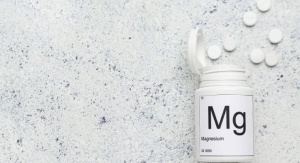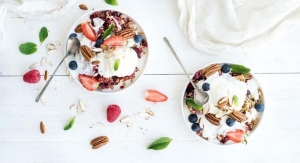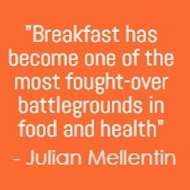Rebecca Wright & Lisa Schofield01.03.11
These days people will do anything to relax, even if just for a few minutes. Some will take a short walk, some will meditate and some will even play a video game to get their mind off things. The same goes for depression. Many consumers who struggle with this health issue will do anything to pull themselves out of the doldrums. But it’s not about getting rid of these mood states entirely. Rather, it’s about finding an appropriate range of emotions that makes for a healthy mind.
As Robi Ludwig, PsyD, psychotherapist, contributor to CARE.com, television commentator and author of Till Death Do Us Part: Love, Marriage and the Mind of the Killer Spouse, points out, “There is a misperception that we should always feel good and happy all the time. The truth is that we all have a normal range of moods as part of life; having a range of appropriate emotions is part of being mentally healthy.”
“Sometimes it is normal and appropriate to feel depressed as a reaction to a set of circumstances. People put pressure on themselves constantly to always feel good and happy,” she added. “When low mood is persistent in a way that is creating trouble, this is when an intervention may be a wise step.”
Besides a person’s biological make-up, there are several external factors that can lead to anxiety and depression. Mitch Skop, senior director/new product development, Pharmachem Laboratories, Kearny, NJ, offered some contemporary examples. “The economic downtown, which will be going into its third year, unemployment, foreclosures and an overseas war in its ninth year are all factors negatively affecting the mood of the masses. Add these events to everyday stresses and strains, and you have a perfect prescription for a melancholy mood, interrupted sleep and poor health.”
Recent Mental Health Data
Most sources for mental health statistics cite data from the National Institute for Mental Health (NIMH), which bases its estimates on 2004 census data, offering an outdated picture of the current situation, according to John Grohol, PsyD, founder, CEO and editor-in-chief of Psychcentral.com, a mental health portal. Instead of the one-in-four statistic used by NIMH, Dr. Grohol claims more recent data show that one in three people are diagnosed with a mental disorder in any given year, which translates to 75 million people.
Putting the most recent data into context, he explained, “Women are at a significantly greater risk for any anxiety disorder (more than double the risk for a specific phobia, like a fear of spiders, for panic disorder and for post-traumatic stress disorder). They are also at slightly more risk for a mood disorder—especially for depression, where their rate is nearly double that of men’s risk for depression.
“Men are at greater risk for impulse-control disorders, but no disorder significantly stands out except conduct disorder (more than four times the risk),” he continued. “Men are at more risk for substance disorders across the board as well, with more than twice the risk for alcoholism and three times the risk for drug abuse.”
Looking at lifetime prevalence rates is also interesting and quite eye opening, Mr. Grohol pointed out. In fact, he said, for any mental disorder (including substance disorders), the lifetime prevalence rate is an astonishing 57%. “That’s more than one in two Americans,” he said. “If you don’t think mental illness will impact your life, you’re sadly mistaken. If it doesn’t hit you, it’s going to hit someone you love or are close to.”
Market Activity
So what are consumers doing about their mood health issues? According to Nutrition Business Journal (NBJ) estimates, U.S. sales of supplements for mood health reached $430 million in 2009, up 7% over 2008. Growth averaged 4% from 2000-2009, but has seen large swings up and down from year to year, says Carla Ooyen, director of market research for NBJ.
For that time period, she said the top sales contributors in the mood health category were 5-HTP, homeopathics, multivitamins and St. John’s Wort.
Beyond supplements, consumers are also seeking relief in the form of foods and beverages. In fact, relaxation beverages are in the embryonic stages of development, particularly in the U.S., and this market is poised to advance rapidly in the coming years, based on recent product launches.
“In the U.S., relaxation drinks have become a legitimate niche with some 350 start-up brands (worth about $10 million) contending for space,” said Julian Mellentin, editor, New Nutrition Business, London, U.K. “No company has yet established a winning template for cracking relaxation drinks. Unlike energy shots, there’s no unassailable strategy in relaxation beverages for formulation, positioning, packaging, distribution or marketing.”
Featured in a recent report from New Nutrition Business (“10 Key Trends in Food, Nutrition & Health 2011”), some of the notable players in this market include Drank, an estimated $6.5 million brand, which contains melatonin, valerian and rose hips; Vacation in a Bottle, or ViB, which is formulated with green tea extracts, B vitamins and the amino acids L-theanine and L-threonine; Mary Jane’s Relaxing Soda, which features passion flower extract and kava kava; Mini Chill, a relaxation shot that focuses on stress reduction and includes 500 mg of valerian root per serving; and Dream Water, containing melatonin, GABA and 5-HTP, which takes stress reduction to another level by inducing sleep.
So if sleeplessness and stress are such big consumer concerns, New Nutrition Business asks: Why isn’t there a huge market established for products that address them, as there is for the other top consumer concerns, digestive health and energy?
“The reason is that ingredient technology is not yet at the point where ingredients can be formulated into products [that] are effective (i.e., “I feel the benefit” is an essential element of strategy in this market), safe, produce good-tasting products and deliver claims that will pass regulatory scrutiny,” the market analyst says. “Nor has anyone yet figured out a winning strategy and winning product format. Solving these two challenges is key to creating new categories—as Red Bull did for energy drinks, 5-Hour Energy did for energy shots, Danone Activia and Fiber One have done for digestive health, and Special K has done in weight management.”
Speaking of Danone, the company already attempted the launch of a stress-relieving dairy drink in selected European markets, back in 2004. Called Zen, its benefits were said to be based on its added magnesium. “Though Zen failed to meet sales expectations and was withdrawn, it signals that the ‘mood food’ area is being looked at seriously—and that figuring out how to succeed will not be easy,” New Nutrition Business contends.
And exactly how relaxed do people want to be? New Nutrition Business reports that so far the biggest divide in this segment is over whether to promote sleep or just relaxation. “A relaxation drink might include kava, valerian root and other herbal ingredients, while melatonin, a hormone that induces sleep, is found in both kinds of drinks,” the market researcher says. “This decision determines much about the brand’s formulation, positioning and other factors.”
Ingredients To Watch
There is a long list of ingredient contenders for mood health products, whether product developers are designing formulations for supplements or foods and beverages.
Don Stanek, director of sales, Linnea, Inc., Easton, PA, says many dietary supplements are keys to good health and by association, good mood. “Of course a healthy lifestyle, which includes a balanced diet, exercise, a good night’s sleep and supplementation are all key ingredients for an individual’s well-being,” he said, adding that 5-HTP (HTPure), vinpocetine and ginkgo biloba are appropriate ingredients that would fit nicely into a mood health formulation.
Going into more detail, he said, “5-HTP has been shown over the years to be an effective and natural way to increase serotonin levels. With healthier serotonin levels individuals tend to have a better outlook on life and improved sleep. It also diminishes carbohydrate cravings, thus resulting in possible weight loss.”
Mr. Stanek added that Linnea’s ginkgo biloba is a “truly pharmaceutical brand” in that it meets the European Commission monograph for ginkgo and is essentially similar to Schwabe EGB761, the worldwide standard for high quality ginkgo. “Ginkgo has been shown to improve memory and/or to lessen the decrease in cognitive impairment as we age,” he said. “As far as mood is concerned, with a better, fresher cognitive awareness the individual feels better, is more focused and more on task. A better memory makes the individual feel better.”
Mr. Stanek continued, “Vinpocetine, another memory enhancer, is also beneficial in creating a more aware individual—one who is more focused due to increased cognitive quality.”
Another ingredient candidate is Kyowa Hakko’s Cognizin citicoline, which the company positions as a multifunctional brain health ingredient. “Cognizin not only has a role in enhancing cognitive function and neuroprotection, but also in modifying mood and response to stimuli via the dopamine system,” said Karen Todd, senior marketing manager, Kyowa Hakko, New York, NY. “A recently published study on Cognizin citicoline focused on one’s motivation to eat, since the response to appetite is regulated in part by dopamine. A significant decrease was seen in participants self-rated appetites after supplementation with Cognizin citicoline.”
Ms. Todd added, “I like talking about the positive side effects of Cognizin relating to giving one a positive outlook or state of mind. We have seen this effect in studies used in drug dependence and now high fat/calorie foods. Participants generally felt better while taking Cognizin.”
According to Lakshmi Prakash, PhD, vice president, Innovation & Business Development, Sabinsa, East Windsor, NJ, several plants inherently harbor “adaptogenic” properties, and the substances enabling these properties have been termed “adaptogens.”
Adaptogens are well established in the traditional systems of medicine. Sabinsa says the ideal “adaptogen” should possess the following qualities: Be relatively innocuous and cause minimal disorder in the human body; and the action should be non-specific (i.e., it should increase resistance to adverse influences of several kinds including those of physical, chemical and biological nature).
Along these lines, Dr. Prakash highlighted several mood health ingredients, including ashwagandha, bacopa and valerian.
Ashwagandha has been traditionally used to stabilize mood in patients with behavioral disturbances. In fact, Dr. Prakash claims, bioactives isolated from the root of Withania somnifera have been shown to be effective in attenuating experimentally induced stress responses, including anxiety and depression.
Dr. Prakash also hailed the anti-anxiety effects of Bacopa monniera as well as its beneficial role in memory and cognition. “Preclinical and clinical studies reveal that treatment with Bacopa monniera extract lowered the stress-related increased secretion of adrenal hormones,” she said.
Valerian has a history of use as a medicinal herb, and was used in ancient Greece and Rome. Hippocrates described its properties, and Galen later prescribed it as a remedy for insomnia. In a clinical study, both kava kava and valerian were found to moderate the effects of psychological stress induced under laboratory conditions in a group of healthy volunteers, according to Dr. Prakash.
Drinking green tea reportedly induces relaxation. A pioneer in the science of green tea, Japan-based Taiyo International found this relaxation effect to be due to the presence of the amino acid L-theanine. Its branded L-theanine ingredient, Suntheanine, is produced via a fermentation process that mimics the natural process in green tea leaves resulting in a 100% pure L-isomer-theanine.
Speaking of amino acids, gamma-aminobutyric acid, also known as GABA, is one of four key neurotransmitters in the brain and is noted for its ability to induce relaxation, reduce stress and anxiety and increase focus. This ingredient, while popular in Japan, is just starting to make a large dent in the relaxation market in the U.S.
Lactium, produced by France-based Ingredia International and distributed in the U.S. by Kearny, NJ-based Pharmachem, is a milk protein hydrolysate containing a bioactive peptide clinically shown to reduce stress-related symptoms and promote relaxation. “Extensive clinical research showed no side effects or toxicity,” said Pharmachem’s Mr. Skop. “One study, conducted on 63 females, showed a significantly greater improvement in stress symptoms in five different areas in the group taking Lactium.
“Lactium has helped people feel better overall, sleep better, awaken better and improve their mood, and reduce their blood pressure and cortisol levels,” Mr. Skop continued. “Most of all, Lactium is non-habit forming and does not produce a drowsy effect when taken.”
Discussing its place in the product landscape, Mr. Skop said Lactium is becoming a popular ingredient for the next wave of relaxation beverages. “We also see more development with Lactium in chewing gum, mints and lozenges,” he added.
Omega 3s have carved out a solid position among mood health ingredients. Although some recent studies have questioned their efficacy, particularly in the area of depression, the overall consensus regarding omega 3s is that they should be top-of-mind when considering the design of a mood health supplement, functional food or beverage.
Most recently, a new study showed that the efficacy of omega 3s in depression might depend on the specific ratio of DHA (docosahexaenoic acid) and EPA (eicosapentaenoic acid). According to a recent article in HealthDay, researchers analyzed the results of 15 previous controlled clinical trials on the use of omega 3s—found in oily fish or in fish oil supplements—to treat depressed people. They found that when used by itself, DHA alone did not seem to offer any benefit. However, DHA combined with a rather high dose of EPA did improve depressive symptoms.
The study, funded by the National Institutes of Health (NIH), was designed as a meta-analysis and presented at the American College of Neuropsychopharmacology meeting in Miami in December.
The study’s lead researcher noted the next step should be to test the anti-depressant effect of the omega 3 fatty acid combination in a large population to establish a dose range.
The Center for Integrative Medicine at the University of Maryland School of Medicine cites passionflower, kava kava and St. John’s Wort as having mood support properties. Passionflower (Passiflora incarnata) was used traditionally in the Americas and later in Europe as a “calming” herb for anxiety, insomnia, seizures and hysteria. It is still used today to treat anxiety and insomnia. Although scientists aren’t sure, it is believed that passionflower works by increasing GABA levels in the brain.
Kava kava (Piper methysticum) has been used as a ceremonial drink in the Pacific Islands for hundreds of years. The roots are chewed or ground into a pulp and added to cold water. Kava is best known for its relaxing qualities, especially its ability to elevate mood, well-being and contentment and produce a feeling of relaxation. Several studies have found that kava may be useful in the treatment of anxiety, insomnia and related nervous disorders. It is currently banned in Europe due to reports of liver failure. In the U.S., however, it is still on the market, although FDA issued a consumer advisory about it in March 2002.
St. John’s Wort (Hypericum perforatum) is a long-living plant with yellow flowers whose medicinal uses were first recorded in ancient Greece. It contains many chemical compounds. Some are believed to be the active ingredients that produce the herb’s effects, including the compounds hypericin and hyperforin. According to NIH, studies suggest that St. John’s Wort is of minimal benefit in treating major depression. A study co-funded by the National Center for Complementary and Alternative Medicine (NCCAM) found that St. John’s Wort was no more effective than placebo in treating major depression of moderate severity. There is some scientific evidence that St. John’s Wort is useful for milder forms of depression, however. Its use in treating anxiety is also questionable (see side bar below).
Most recently, SAMe (S-adenosyl methionine) was studied and found to be helpful in subjects not responding to anti-depressant treatment alone. The study, conducted by researchers at Harvard Medical School and Massachusetts General Hospital (MGH) in Boston, examined 73 adults who took SAMe or placebo for six weeks. All subjects continued on their anti-depressant medications, while more than half added SAMe to their regimens. Thirty-six percent of those taking the SAMe/anti-depressant combination showed improvement, compared to 18% in the placebo group. Further, more than a quarter of those taking the SAMe/anti-depressant combination experienced a complete remission of symptoms. The study was published in the August 2010 issue of the American Journal of Psychiatry.
George Papakostas, MD, associate professor of psychiatry at Harvard Medical School, director of treatment-resistant depression studies in the Department of Psychiatry at MGH, and lead author, commented on the study and what it means for the future of SAMe. “These findings provide preliminary support for the efficacy, safety and tolerability of SAMe as an additive therapy for patients with major depressive disorders who do not respond to anti-depressant treatment alone,” he said. “Continued research, however, is urgently needed to more definitively further our understanding of the role of SAMe in the treatment of adults diagnosed with depression.”
Nutritional and herbal supplementation is an effective method for treating anxiety and anxiety-related conditions without the risk of serious side effects, according to a systematic review of studies published in Nutrition Journal in October.
Researchers said strong evidence exists for the use of passionflower or kava and combinations of L-lysine and L-arginine as treatments for anxiety symptoms and disorders. In addition, magnesium supplements and other herbal combinations may hold promise. Interestingly, they also said St. John’s Wort monotherapy “has insufficient evidence for use as an effective anxiolytic treatment.”
“Over the past several decades, complementary and alternative medications (CAM) have increasingly become a part of everyday treatment,” the study authors wrote. “With the rising cost of prescription medications and their production of unwanted side effects, patients are exploring herbal and other natural remedies for the management and treatment of psychological conditions.”
Nearly 7 million Americans suffer from generalized anxiety disorder. Many also suffer from side effects related to treatment.
Researchers analyzed a total of 24 studies that investigated five different CAM monotherapies and eight different combination treatments involving 2619 participants. There were 21 randomized controlled trials and three open-label, uncontrolled observational studies.
Most studies involved patients who had been diagnosed with either an anxiety disorder or depression (n = 1786). However, eight studies used healthy volunteers (n = 877) who had normal levels of anxiety, were undergoing surgery, tested at the upper limit of the normal range of a trait anxiety scale, had adverse premenstrual symptoms or were peri-menopausal, reported anxiety and insomnia, or had one month or more of elevated generalized anxiety.
Heterogeneity and the small number of studies for each supplement or combination therapy prevented a formal meta-analysis, but of the randomized controlled trials reviewed, 71% (15 out of 21) showed a positive direction of evidence. Any reported side effects were mild to moderate.
Researchers acknowledged that any positive effects seen could be due to a placebo effect, which may have a significant psychological impact on participants with mental disorders. However, based on the systematic review, “strong evidence exists for the use of herbal supplements containing extracts of passionflower or kava and combinations of L-lysine and L-arginine as treatments for anxiety symptoms and disorders.”
As Robi Ludwig, PsyD, psychotherapist, contributor to CARE.com, television commentator and author of Till Death Do Us Part: Love, Marriage and the Mind of the Killer Spouse, points out, “There is a misperception that we should always feel good and happy all the time. The truth is that we all have a normal range of moods as part of life; having a range of appropriate emotions is part of being mentally healthy.”
“Sometimes it is normal and appropriate to feel depressed as a reaction to a set of circumstances. People put pressure on themselves constantly to always feel good and happy,” she added. “When low mood is persistent in a way that is creating trouble, this is when an intervention may be a wise step.”
Besides a person’s biological make-up, there are several external factors that can lead to anxiety and depression. Mitch Skop, senior director/new product development, Pharmachem Laboratories, Kearny, NJ, offered some contemporary examples. “The economic downtown, which will be going into its third year, unemployment, foreclosures and an overseas war in its ninth year are all factors negatively affecting the mood of the masses. Add these events to everyday stresses and strains, and you have a perfect prescription for a melancholy mood, interrupted sleep and poor health.”
Recent Mental Health Data
Most sources for mental health statistics cite data from the National Institute for Mental Health (NIMH), which bases its estimates on 2004 census data, offering an outdated picture of the current situation, according to John Grohol, PsyD, founder, CEO and editor-in-chief of Psychcentral.com, a mental health portal. Instead of the one-in-four statistic used by NIMH, Dr. Grohol claims more recent data show that one in three people are diagnosed with a mental disorder in any given year, which translates to 75 million people.
Putting the most recent data into context, he explained, “Women are at a significantly greater risk for any anxiety disorder (more than double the risk for a specific phobia, like a fear of spiders, for panic disorder and for post-traumatic stress disorder). They are also at slightly more risk for a mood disorder—especially for depression, where their rate is nearly double that of men’s risk for depression.
“Men are at greater risk for impulse-control disorders, but no disorder significantly stands out except conduct disorder (more than four times the risk),” he continued. “Men are at more risk for substance disorders across the board as well, with more than twice the risk for alcoholism and three times the risk for drug abuse.”
Looking at lifetime prevalence rates is also interesting and quite eye opening, Mr. Grohol pointed out. In fact, he said, for any mental disorder (including substance disorders), the lifetime prevalence rate is an astonishing 57%. “That’s more than one in two Americans,” he said. “If you don’t think mental illness will impact your life, you’re sadly mistaken. If it doesn’t hit you, it’s going to hit someone you love or are close to.”
Market Activity
So what are consumers doing about their mood health issues? According to Nutrition Business Journal (NBJ) estimates, U.S. sales of supplements for mood health reached $430 million in 2009, up 7% over 2008. Growth averaged 4% from 2000-2009, but has seen large swings up and down from year to year, says Carla Ooyen, director of market research for NBJ.
For that time period, she said the top sales contributors in the mood health category were 5-HTP, homeopathics, multivitamins and St. John’s Wort.
Beyond supplements, consumers are also seeking relief in the form of foods and beverages. In fact, relaxation beverages are in the embryonic stages of development, particularly in the U.S., and this market is poised to advance rapidly in the coming years, based on recent product launches.
“In the U.S., relaxation drinks have become a legitimate niche with some 350 start-up brands (worth about $10 million) contending for space,” said Julian Mellentin, editor, New Nutrition Business, London, U.K. “No company has yet established a winning template for cracking relaxation drinks. Unlike energy shots, there’s no unassailable strategy in relaxation beverages for formulation, positioning, packaging, distribution or marketing.”
Featured in a recent report from New Nutrition Business (“10 Key Trends in Food, Nutrition & Health 2011”), some of the notable players in this market include Drank, an estimated $6.5 million brand, which contains melatonin, valerian and rose hips; Vacation in a Bottle, or ViB, which is formulated with green tea extracts, B vitamins and the amino acids L-theanine and L-threonine; Mary Jane’s Relaxing Soda, which features passion flower extract and kava kava; Mini Chill, a relaxation shot that focuses on stress reduction and includes 500 mg of valerian root per serving; and Dream Water, containing melatonin, GABA and 5-HTP, which takes stress reduction to another level by inducing sleep.
So if sleeplessness and stress are such big consumer concerns, New Nutrition Business asks: Why isn’t there a huge market established for products that address them, as there is for the other top consumer concerns, digestive health and energy?
“The reason is that ingredient technology is not yet at the point where ingredients can be formulated into products [that] are effective (i.e., “I feel the benefit” is an essential element of strategy in this market), safe, produce good-tasting products and deliver claims that will pass regulatory scrutiny,” the market analyst says. “Nor has anyone yet figured out a winning strategy and winning product format. Solving these two challenges is key to creating new categories—as Red Bull did for energy drinks, 5-Hour Energy did for energy shots, Danone Activia and Fiber One have done for digestive health, and Special K has done in weight management.”
Speaking of Danone, the company already attempted the launch of a stress-relieving dairy drink in selected European markets, back in 2004. Called Zen, its benefits were said to be based on its added magnesium. “Though Zen failed to meet sales expectations and was withdrawn, it signals that the ‘mood food’ area is being looked at seriously—and that figuring out how to succeed will not be easy,” New Nutrition Business contends.
And exactly how relaxed do people want to be? New Nutrition Business reports that so far the biggest divide in this segment is over whether to promote sleep or just relaxation. “A relaxation drink might include kava, valerian root and other herbal ingredients, while melatonin, a hormone that induces sleep, is found in both kinds of drinks,” the market researcher says. “This decision determines much about the brand’s formulation, positioning and other factors.”
Ingredients To Watch
There is a long list of ingredient contenders for mood health products, whether product developers are designing formulations for supplements or foods and beverages.
Don Stanek, director of sales, Linnea, Inc., Easton, PA, says many dietary supplements are keys to good health and by association, good mood. “Of course a healthy lifestyle, which includes a balanced diet, exercise, a good night’s sleep and supplementation are all key ingredients for an individual’s well-being,” he said, adding that 5-HTP (HTPure), vinpocetine and ginkgo biloba are appropriate ingredients that would fit nicely into a mood health formulation.
Going into more detail, he said, “5-HTP has been shown over the years to be an effective and natural way to increase serotonin levels. With healthier serotonin levels individuals tend to have a better outlook on life and improved sleep. It also diminishes carbohydrate cravings, thus resulting in possible weight loss.”
Mr. Stanek added that Linnea’s ginkgo biloba is a “truly pharmaceutical brand” in that it meets the European Commission monograph for ginkgo and is essentially similar to Schwabe EGB761, the worldwide standard for high quality ginkgo. “Ginkgo has been shown to improve memory and/or to lessen the decrease in cognitive impairment as we age,” he said. “As far as mood is concerned, with a better, fresher cognitive awareness the individual feels better, is more focused and more on task. A better memory makes the individual feel better.”
Mr. Stanek continued, “Vinpocetine, another memory enhancer, is also beneficial in creating a more aware individual—one who is more focused due to increased cognitive quality.”
Another ingredient candidate is Kyowa Hakko’s Cognizin citicoline, which the company positions as a multifunctional brain health ingredient. “Cognizin not only has a role in enhancing cognitive function and neuroprotection, but also in modifying mood and response to stimuli via the dopamine system,” said Karen Todd, senior marketing manager, Kyowa Hakko, New York, NY. “A recently published study on Cognizin citicoline focused on one’s motivation to eat, since the response to appetite is regulated in part by dopamine. A significant decrease was seen in participants self-rated appetites after supplementation with Cognizin citicoline.”
Ms. Todd added, “I like talking about the positive side effects of Cognizin relating to giving one a positive outlook or state of mind. We have seen this effect in studies used in drug dependence and now high fat/calorie foods. Participants generally felt better while taking Cognizin.”
According to Lakshmi Prakash, PhD, vice president, Innovation & Business Development, Sabinsa, East Windsor, NJ, several plants inherently harbor “adaptogenic” properties, and the substances enabling these properties have been termed “adaptogens.”
Adaptogens are well established in the traditional systems of medicine. Sabinsa says the ideal “adaptogen” should possess the following qualities: Be relatively innocuous and cause minimal disorder in the human body; and the action should be non-specific (i.e., it should increase resistance to adverse influences of several kinds including those of physical, chemical and biological nature).
Along these lines, Dr. Prakash highlighted several mood health ingredients, including ashwagandha, bacopa and valerian.
Ashwagandha has been traditionally used to stabilize mood in patients with behavioral disturbances. In fact, Dr. Prakash claims, bioactives isolated from the root of Withania somnifera have been shown to be effective in attenuating experimentally induced stress responses, including anxiety and depression.
Dr. Prakash also hailed the anti-anxiety effects of Bacopa monniera as well as its beneficial role in memory and cognition. “Preclinical and clinical studies reveal that treatment with Bacopa monniera extract lowered the stress-related increased secretion of adrenal hormones,” she said.
Valerian has a history of use as a medicinal herb, and was used in ancient Greece and Rome. Hippocrates described its properties, and Galen later prescribed it as a remedy for insomnia. In a clinical study, both kava kava and valerian were found to moderate the effects of psychological stress induced under laboratory conditions in a group of healthy volunteers, according to Dr. Prakash.
Drinking green tea reportedly induces relaxation. A pioneer in the science of green tea, Japan-based Taiyo International found this relaxation effect to be due to the presence of the amino acid L-theanine. Its branded L-theanine ingredient, Suntheanine, is produced via a fermentation process that mimics the natural process in green tea leaves resulting in a 100% pure L-isomer-theanine.
Speaking of amino acids, gamma-aminobutyric acid, also known as GABA, is one of four key neurotransmitters in the brain and is noted for its ability to induce relaxation, reduce stress and anxiety and increase focus. This ingredient, while popular in Japan, is just starting to make a large dent in the relaxation market in the U.S.
Lactium, produced by France-based Ingredia International and distributed in the U.S. by Kearny, NJ-based Pharmachem, is a milk protein hydrolysate containing a bioactive peptide clinically shown to reduce stress-related symptoms and promote relaxation. “Extensive clinical research showed no side effects or toxicity,” said Pharmachem’s Mr. Skop. “One study, conducted on 63 females, showed a significantly greater improvement in stress symptoms in five different areas in the group taking Lactium.
“Lactium has helped people feel better overall, sleep better, awaken better and improve their mood, and reduce their blood pressure and cortisol levels,” Mr. Skop continued. “Most of all, Lactium is non-habit forming and does not produce a drowsy effect when taken.”
Discussing its place in the product landscape, Mr. Skop said Lactium is becoming a popular ingredient for the next wave of relaxation beverages. “We also see more development with Lactium in chewing gum, mints and lozenges,” he added.
Omega 3s have carved out a solid position among mood health ingredients. Although some recent studies have questioned their efficacy, particularly in the area of depression, the overall consensus regarding omega 3s is that they should be top-of-mind when considering the design of a mood health supplement, functional food or beverage.
Most recently, a new study showed that the efficacy of omega 3s in depression might depend on the specific ratio of DHA (docosahexaenoic acid) and EPA (eicosapentaenoic acid). According to a recent article in HealthDay, researchers analyzed the results of 15 previous controlled clinical trials on the use of omega 3s—found in oily fish or in fish oil supplements—to treat depressed people. They found that when used by itself, DHA alone did not seem to offer any benefit. However, DHA combined with a rather high dose of EPA did improve depressive symptoms.
The study, funded by the National Institutes of Health (NIH), was designed as a meta-analysis and presented at the American College of Neuropsychopharmacology meeting in Miami in December.
The study’s lead researcher noted the next step should be to test the anti-depressant effect of the omega 3 fatty acid combination in a large population to establish a dose range.
The Center for Integrative Medicine at the University of Maryland School of Medicine cites passionflower, kava kava and St. John’s Wort as having mood support properties. Passionflower (Passiflora incarnata) was used traditionally in the Americas and later in Europe as a “calming” herb for anxiety, insomnia, seizures and hysteria. It is still used today to treat anxiety and insomnia. Although scientists aren’t sure, it is believed that passionflower works by increasing GABA levels in the brain.
Kava kava (Piper methysticum) has been used as a ceremonial drink in the Pacific Islands for hundreds of years. The roots are chewed or ground into a pulp and added to cold water. Kava is best known for its relaxing qualities, especially its ability to elevate mood, well-being and contentment and produce a feeling of relaxation. Several studies have found that kava may be useful in the treatment of anxiety, insomnia and related nervous disorders. It is currently banned in Europe due to reports of liver failure. In the U.S., however, it is still on the market, although FDA issued a consumer advisory about it in March 2002.
St. John’s Wort (Hypericum perforatum) is a long-living plant with yellow flowers whose medicinal uses were first recorded in ancient Greece. It contains many chemical compounds. Some are believed to be the active ingredients that produce the herb’s effects, including the compounds hypericin and hyperforin. According to NIH, studies suggest that St. John’s Wort is of minimal benefit in treating major depression. A study co-funded by the National Center for Complementary and Alternative Medicine (NCCAM) found that St. John’s Wort was no more effective than placebo in treating major depression of moderate severity. There is some scientific evidence that St. John’s Wort is useful for milder forms of depression, however. Its use in treating anxiety is also questionable (see side bar below).
Most recently, SAMe (S-adenosyl methionine) was studied and found to be helpful in subjects not responding to anti-depressant treatment alone. The study, conducted by researchers at Harvard Medical School and Massachusetts General Hospital (MGH) in Boston, examined 73 adults who took SAMe or placebo for six weeks. All subjects continued on their anti-depressant medications, while more than half added SAMe to their regimens. Thirty-six percent of those taking the SAMe/anti-depressant combination showed improvement, compared to 18% in the placebo group. Further, more than a quarter of those taking the SAMe/anti-depressant combination experienced a complete remission of symptoms. The study was published in the August 2010 issue of the American Journal of Psychiatry.
George Papakostas, MD, associate professor of psychiatry at Harvard Medical School, director of treatment-resistant depression studies in the Department of Psychiatry at MGH, and lead author, commented on the study and what it means for the future of SAMe. “These findings provide preliminary support for the efficacy, safety and tolerability of SAMe as an additive therapy for patients with major depressive disorders who do not respond to anti-depressant treatment alone,” he said. “Continued research, however, is urgently needed to more definitively further our understanding of the role of SAMe in the treatment of adults diagnosed with depression.”
Nutritional and herbal supplementation is an effective method for treating anxiety and anxiety-related conditions without the risk of serious side effects, according to a systematic review of studies published in Nutrition Journal in October.
Researchers said strong evidence exists for the use of passionflower or kava and combinations of L-lysine and L-arginine as treatments for anxiety symptoms and disorders. In addition, magnesium supplements and other herbal combinations may hold promise. Interestingly, they also said St. John’s Wort monotherapy “has insufficient evidence for use as an effective anxiolytic treatment.”
“Over the past several decades, complementary and alternative medications (CAM) have increasingly become a part of everyday treatment,” the study authors wrote. “With the rising cost of prescription medications and their production of unwanted side effects, patients are exploring herbal and other natural remedies for the management and treatment of psychological conditions.”
Nearly 7 million Americans suffer from generalized anxiety disorder. Many also suffer from side effects related to treatment.
Researchers analyzed a total of 24 studies that investigated five different CAM monotherapies and eight different combination treatments involving 2619 participants. There were 21 randomized controlled trials and three open-label, uncontrolled observational studies.
Most studies involved patients who had been diagnosed with either an anxiety disorder or depression (n = 1786). However, eight studies used healthy volunteers (n = 877) who had normal levels of anxiety, were undergoing surgery, tested at the upper limit of the normal range of a trait anxiety scale, had adverse premenstrual symptoms or were peri-menopausal, reported anxiety and insomnia, or had one month or more of elevated generalized anxiety.
Heterogeneity and the small number of studies for each supplement or combination therapy prevented a formal meta-analysis, but of the randomized controlled trials reviewed, 71% (15 out of 21) showed a positive direction of evidence. Any reported side effects were mild to moderate.
Researchers acknowledged that any positive effects seen could be due to a placebo effect, which may have a significant psychological impact on participants with mental disorders. However, based on the systematic review, “strong evidence exists for the use of herbal supplements containing extracts of passionflower or kava and combinations of L-lysine and L-arginine as treatments for anxiety symptoms and disorders.”






















